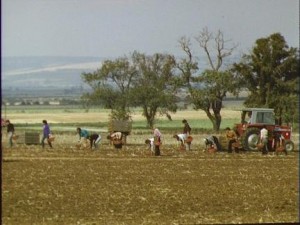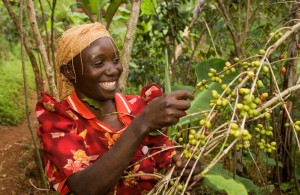Making things fair in business and society
The rules and regulations in Deuteronomy cover how we should run society as a whole. They consider personal morals, family values, religious observance and running society. In my opinion, there is one other important area that doesn’t get the attention that those other areas do – how we conduct our business transactions.
This latest section of Deuteronomy – chapters 25-27 – contains a number of points about how we should not leave our religious beliefs and morals behind when we enter the world of commerce. Let’s look over them.
Do not take advantage of a hired worker who is poor and needy, whether that worker is a fellow Israelite or a foreigner residing in one of your towns. Pay them their wages each day before sunset, because they are poor and are counting on it. Otherwise they may cry to the Lord against you, and you will be guilty of sin. Deuteronomy 24:14-15
 The hired worker is always the lowest of the low in the business world. Today, even in the UK, hired workers get treated badly and the laws that are created to prevent that are often circumvented. For example, in the farming sector, there is evidence of people having deductions for accommodation, transport, clothing and food taken out of their pay so that they are left with as little as £2 an hour for hard graft in the potato fields of East Anglia. Outside of the UK, the situation is often much worse and the products we use and buy everyday are implicated in all kinds of ways.
The hired worker is always the lowest of the low in the business world. Today, even in the UK, hired workers get treated badly and the laws that are created to prevent that are often circumvented. For example, in the farming sector, there is evidence of people having deductions for accommodation, transport, clothing and food taken out of their pay so that they are left with as little as £2 an hour for hard graft in the potato fields of East Anglia. Outside of the UK, the situation is often much worse and the products we use and buy everyday are implicated in all kinds of ways.
For example, the average electronic item we buy might impact the following sectors among others:
- Mining – a smartphone screen needs all kinds of rare metals and elements in its manufacture. Those materials come from mines around the world where thousands die every year in accidents and long term illness caused by dust and exposure to dangerous materials.
- Manufacturing – the actual manufacturing process may seem high tech but many of the tasks are laborious and done by hand by underpaid and undervalued workers, often working long hours, without breaks in dangerous conditions.
- Packaging – the insatiable need for wood fibre in packaging has a long lasting effect on the woods and forests of South East Asia driving people and animals out of sustainable habitats.
- Shipping – even getting the goods from the Far East to the UK has a moral dimension. Commercial shipping is the second most dangerous job after deep sea fishing. The majority of the ships are registered under flags of convenience to avoid rules and regulations and then employ poor people – often Filipinos – on poor wages and even worse conditions. There have already been 10 shipwrecks in 2015.

The Fairphone is great example of working in every area of the supply chain to do things the most ethical way. Available from the Phone Coop in UK.
So many examples of hired workers being treated badly. And it is effectively because of us. Our desire for cheap prices and bargains often leads to shorts cut being taken and the problems listed above.
When you harvest the grapes in your vineyard, do not go over the vines again. Leave what remains for the foreigner, the fatherless and the widow. Remember that you were slaves in Egypt. That is why I command you to do this. Deuteronomy 24:21-22
This was the basis of the welfare state in biblical times. Take your harvest but don’t pick it clean. Allow the poor and the needy to gather what is left so they might at least live. We may have institutionalised the welfare state, but the same applies to us. We are required by law to “leave” some of our salary with the government to pay for the welfare safety net we hope we will never need. Tax is not about giving up what is yours – it is about creating a society where no one is hungry, no one is turned away from the doctors and everyone has a roof over their head.
Do not have two differing weights in your bag—one heavy, one light. Do not have two differing measures in your house—one large, one small. You must have accurate and honest weights and measures, so that you may live long in the land the Lord your God is giving you. For the Lord your God detests anyone who does these things, anyone who deals dishonestly. Deuteronomy 25:13-16
This is perhaps the verse that seems most remote to us. When do we ever trade in a way that means we have too different measures? Well you may be surprised.
Across the tea and coffee sectors, there are all kinds of sharp practices that leave the poor smallholder farmer on the receiving end of a raw deal. In the South American coffee industry, there are a group of middlemen called the coyotes who use all kinds of immoral means to boost their income and reduce that which is paid to the farmer. Scales that are tampered with mean the farmer does not get his full price per bag. High priced loans for fertilisers and pesticides mean farmers get even less for their crops. And lack of knowledge of the world coffee market means in a rising market, the coyotes shield the farmer from the real price he will achieve when he sells on. And this is the coffee that ends up in your latte, espresso or jar of Nescafe.
So what is the solution? How can I influence the way in which people are treated around the world?
Well there is no single solution and no easy answers. But here are a few tips:
- Buy fairtrade goods when you see them. In certain product categories, your favourite brands are switching (Cadbury’s Dairy Milk or Tate and Lyle sugar) so support those that switch. Fairtrade guarantees that many of the problems mentioned above are eradicated from supply chains. Check out all the different categories now covered and the companies taking part here.
- Buy more local goods. If the fresh food you buy comes from a local farm, you potentially avoid many of the excesses of the international fresh produce supply. It will also force you to buy more seasonal fruit and veg which generally has less impact on the environment.
- Support companies who are trying to do the right thing and avoid those companies that aren’t. Not sure who they are? Well the Ethical Trading Initiative is working hard to try and help the biggest companies make changes in their supply chains. You can see their members here.
- Buy from ethical independent retailers who work hard to check on the products you buy so you don’t have to. People like Ethical Superstore, Traidcraft or the fantastic hisbe in Brighton.
So your challenge for today? Switch your coffee or your tea to fairtrade. The quality is good. The price is right. So if you do nothing else, do this.













